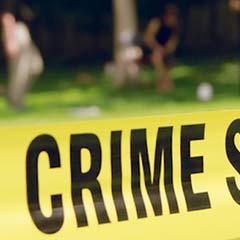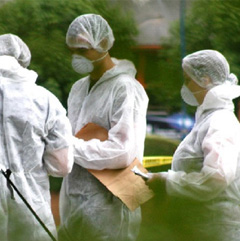 How to Become
How to Become
Even if you’re familiar with some of the different careers in forensics, you may not know the specific paths that lead to them, or the options and decision points that present themselves along the way. So, we’ve carved out a section of our blog to provide very detailed, step-by-step, descriptions of how to become everything from a forensic accountant to a forensic psychologist. Like many career paths, forensics career paths can be complex and nuanced, and are rarely “one size fits all”, so we’ve attempted to break down the major decision points, and clarify the essential component skills, experiences, and educational qualifications for each path, along with the personality traits, likes and dislikes that might make one career a better fit than another.

How to Detect AI: A Guide to Digital Forensics Tools
Forensic analysis is built on the principle that digital evidence represents reality. But AI-generated and AI-altered media undermine that assumption, forcing experts to assess not just what was recorded, but whether the event ever occurred at all.

How to Become a Forensic Science Technician
Forensic science technicians have a regular presence at crime scenes, aiding in the process of criminal investigations under a crime scene leader or field supervisor. The role involves helping to collect, document, and analyze evidence and submitting it to the crime laboratory.

How to Become a Paralegal
Paralegals play a critical role in the legal system, supporting attorneys with research, drafting, case preparation, and client communication. They help manage case files, prepare documents for court, coordinate with clients and witnesses, and ensure that legal processes run smoothly. While they cannot provide legal advice or represent clients in court, paralegals are indispensable to law firms, corporations, government agencies, and nonprofits.

Fraud investigation is the research of intentional criminal deception and involves civil and criminal methods of examination. Professional fraud investigators have a variety of job responsibilities in corporate or government-based institutions.

How To Become a Crime Analyst
Crime analysts work in law enforcement analyzing crime reports, arrest records, police calls, and other data to establish patterns and make correlations. They synthesize the data they gather into detailed reports that their departments use to make decisions about prosecutions, patrols, and staffing.

How to Become a Crime Scene Investigator (CSI)
The crime scene investigator, also called a CSI, will come to crime scenes in order to conduct an investigation and to collect evidence, and although there are varied paths to becoming a crime scene investigator, they typically involve a mix of rigorous coursework and empirical training.

How to Become a Forensic Nurse
Forensic nursing—an area at the intersection of medicine and law—is a specialty only recently recognized by the American Nurses Association (ANA). Read on to discover how to join the burgeoning field of forensic nursing, including information about accredited educational programs (online and on-campus) and professional certification.

How to Become a Forensic Psychologist
What do forensic psychologists do? Responsibilities may vary, but most psychologists in the field help police determine the motives for certain crimes, narrow down a suspect pool, and generally provide deeper insight into the criminal mind in order to assist investigators.



